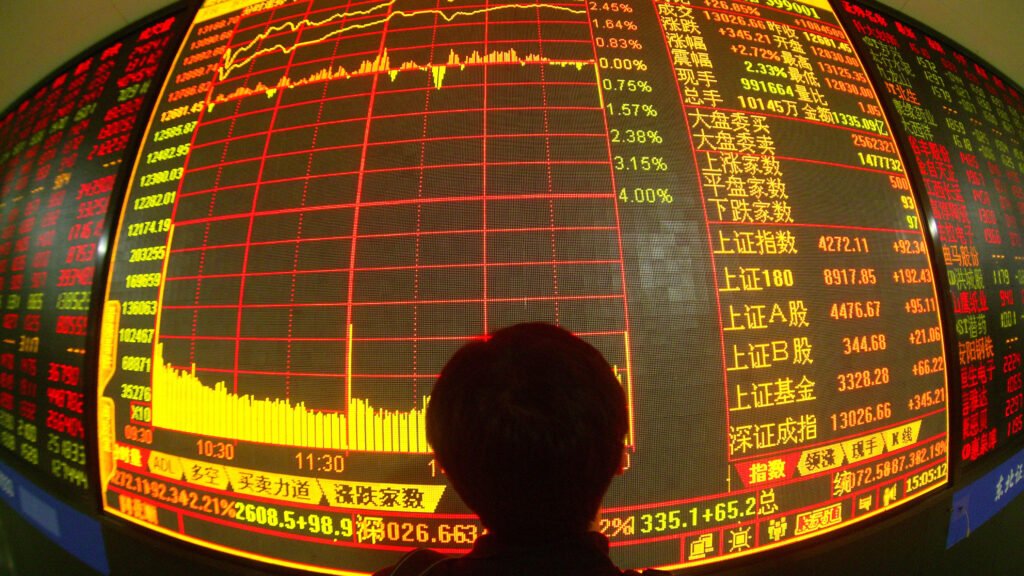Last week, numerous media outlets reported that foreign investment in China fell by 80% last year compared to 2022, the lowest level in 30 years. This is a statement about the amount of inflows, not about the total stock of foreign investment in China, which remains at a high level. Investments tend to fluctuate from year to year, and there’s always the question of whether a new data point represents a sudden change or a trend. In this case, it’s starting to look like a trend. So, for the sake of argument, let’s assume that and, keeping in mind that I’m not a professional economist, let’s take a look at why that’s happening and what it means. . If you’re really interested in this, check out one of them. Currently, there is no shortage of economists commenting on China.
Major events rarely have a single cause, and this case is no exception. China’s economy is currently going through a period of great difficulty. Growth, while still positive, has fallen, and unemployment appears to be rising, although the government has stopped reporting some data. The real estate bubble appears to have burst and is holding back the rest of the economy. Overall, it appears that demand is not growing enough and supply is growing too fast, making the threat of deflation a further problem. China is keeping interest rates low to stimulate growth and demand, while U.S. interest rates remain high, at least for now. These are all factors that tell foreign investors that now is not a good time to invest in China and that the US is currently a better option.
There are also political factors. The Chinese Communist Party (CCP) under Xi Jinping continues to tighten its control over the population and economy, including over Western investors. Businesses have been raided and employees detained. The Chinese Communist Party is clearly more interested in control than growth. This has a direct impact on foreign investment due to China’s efforts to shut down or harass companies that provide due diligence services to foreign investors. While it is standard procedure around the world for investors to hire experts to research potential investments, China appears to be more concerned about interfering with the collection and transmission of information to foreign sources. is. This is coming back to bite them as investors turn away because they no longer have the information they need to make investment decisions.
Further difficulties loom as Chinese leaders once again begin to look like they are trying to solve their domestic economic problems by exporting. They’ve done things like this repeatedly in the past, but this time they’re catching up as more countries outside of the US have seen the film before and are taking action more aggressively than ever before. Maybe. When Treasury Secretary Janet Yellen visited China last week, overproduction of manufactured goods was at the top of her list of complaints. This is a chronic problem in China. When credit is allocated by the state rather than the market, it inevitably leads to overinvestment in priority areas, which creates overcapacity, which in turn leads to overproduction, which is then dumped on the rest of the world. Become. Think steel, aluminum, wind turbines, solar panels, and eventually electric vehicles (EVs).
Market economists’ solution is to open up the economy, reduce the role of state-owned enterprises (SOEs), and do more to boost domestic demand to absorb excess supply. Chinese economists, trained in Marxism-Leninism, seem to be more focused on further expanding supply. They also know that as long as Xi Jinping is in power, advocating a reduction in the role of state-owned enterprises is not a good move.
Foreign responses to China’s overcapacity have primarily been to use existing trade tools such as antidumping and countervailing duty laws to impose tariffs on dumped or subsidized imports. These laws are currently being criticized as too little, too late. Investigations and remedies can take more than a year and often fail to effectively address China’s strategy of avoiding tariffs, such as the recent example of solar panels being routed through four Southeast Asian countries. There now appears to be a growing interest in taking faster and more decisive defensive action. The European Commission has launched an investigation into China’s EV imports, and tariffs are likely to be imposed this summer. Lawmakers in Congress have called for pre-emptive tariffs on Chinese EVs (and legacy chips) to prevent the same thing from happening here, and the administration appears to be considering it. These tools may work, but this is still a whack-a-mole problem, creating new problems every time you address an old problem. A better solution is for China to change its policies. The latest investment data is a key talking point for Yellen, who is working hard to convince China that further capacity building is in neither China’s nor anyone else’s interest. If China is serious about attracting the investment it wants, it will need to make major changes to its economic policies and practices that make life difficult for foreign companies and businesspeople.
William Reinsch holds the Scholl Chair in International Business at the Center for Strategic and International Studies in Washington, DC.

